INDIA marks its 75th Independence Day at a moment when the whole world is yearning for a sustainable route out of the Covid pandemic.
The country has risen to the current challenges through the resilience and sacrifice of its people – the very traits which secured its freedom as an independent nation at the famous ‘midnight hour’ on August 15, 1947.
This same resolve will be crucial as India emerges into the next phase of recovery and revival, especially as its vaccination programme gathers momentum.
In our collective quest to “build back better”, India has a key role to play in shaping the new world order. As the largest democracy, and one of the most diverse countries in the world – with a multiplicity of regional languages, cultures, religions and traditions – India has a unique opportunity to act as a positive role model among the family of nations.
India is well-positioned to benefit from accelerating trends. Global supply chains are already being diversified and India stands to become a major beneficiary, especially as it speeds up the pace of domestic reforms. Indian talent is also shining through. Whether in healthcare or technology, the contribution of Indian-origin doctors, pharmaceutical companies or IT professionals is increasingly visible across the world.
Through the pandemic, Britain and India have also been drawn closer together, whether on vaccine collaboration or the mutual support between diaspora communities.
As a trustee of the British Asian Trust, I am incredibly proud that we were able to stand shoulder to shoulder with India during its hour of need; with the generous support of British Indians and the wider public, raising more than £6 million to help address India’s oxygen emergency, supplying 5,000 oxygen concentrators and saving many more lives.
Looking forward, this same spirit of collaboration is important in harnessing the full potential of the special relationship between our two countries. Indeed, the past 12 months have seen several key milestones, which will underpin how UK-India relations develop over the coming decade.
On the UK side, the publication of the long awaited Integrated Review of security, defence, development and foreign policy, released in March 2021, provides a framework for defining ‘Global Britain’. One of the key themes and ambitions of this strategy is deepening engagement in the Indo-Pacific region.
On the heels of the Integrated Review, the two countries launched the 2030 Roadmap for UK-India Relations, providing a concrete agenda for the ‘Comprehensive Strategic Partnership’ agreed between prime ministers Boris Johnson and Narendra Modi at their virtual summit in May 2021.
The vision for this partnership spans a whole spectrum of areas under five broad categories – connecting our countries and people; trade and prosperity; defence and security; climate; and health. It touches every aspect of life for the citizens of both countries.
The 2030 roadmap was also coupled with the announcement of an ‘Enhanced Trade Partnership’ aimed at doubling UK-India trade, currently worth £23 billion, and paving the way for a future Free Trade Agreement.
The UK’s Department of International Trade has subsequently launched a consultation seeking input from individuals and businesses to identify their top priorities for a future trade deal and where they think the biggest gains from such a deal may lie. This consultation remains open until August 31.
Both countries have also made progress in addressing historically contentious issues. India has just announced a reversal of its retrospective tax law which should facilitate the settlement of longstanding legal disputes with several large UK companies, including Cairn and Vodafone.
This is a welcome move which will boost confidence among international investors and help attract more capital to support India’s growth.
The UK has also addressed the issue of post study work visas for Indian (and other international) students. From July 1, 2021, graduates have been able to apply to remain in the UK for a further period of two years to gain work experience.
Following a time of declining numbers, Indian students now represent the second largest overseas group studying in Britain, receiving more than 55,000 visas in the last academic year.
As we look to 2030, and beyond, I hope the renewed bonds between Britain and India are enhanced further through partnership on global issues, most notably our responsibility for protecting ‘Mother Earth’ against climate change and the loss of biodiversity.
India played a major role in shaping the 2015 Paris Agreement, and launched the International Solar Alliance, which has since grown to 121 countries.
It has an even bigger responsibility at COP26 in Glasgow and its actions will be analysed carefully in the run up to November’s crucial summit.
So this Sunday (15), as Indians around the world raise the tricolour in celebration of independence, we stand in solidarity with the hopes and aspirations of 1.3 billion people, united in the pursuit of a healthier and more sustainable planet, underpinned by our shared values, and committed to enduring peace and prosperity for our citizens – and the whole of mankind.














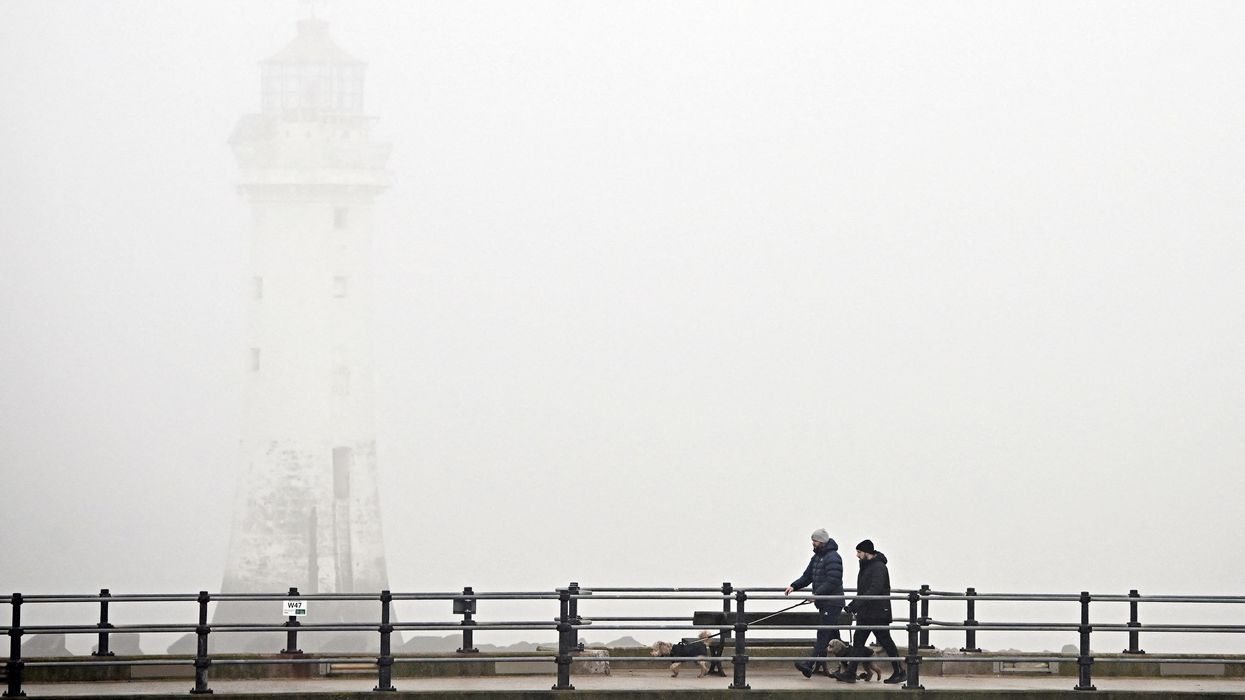

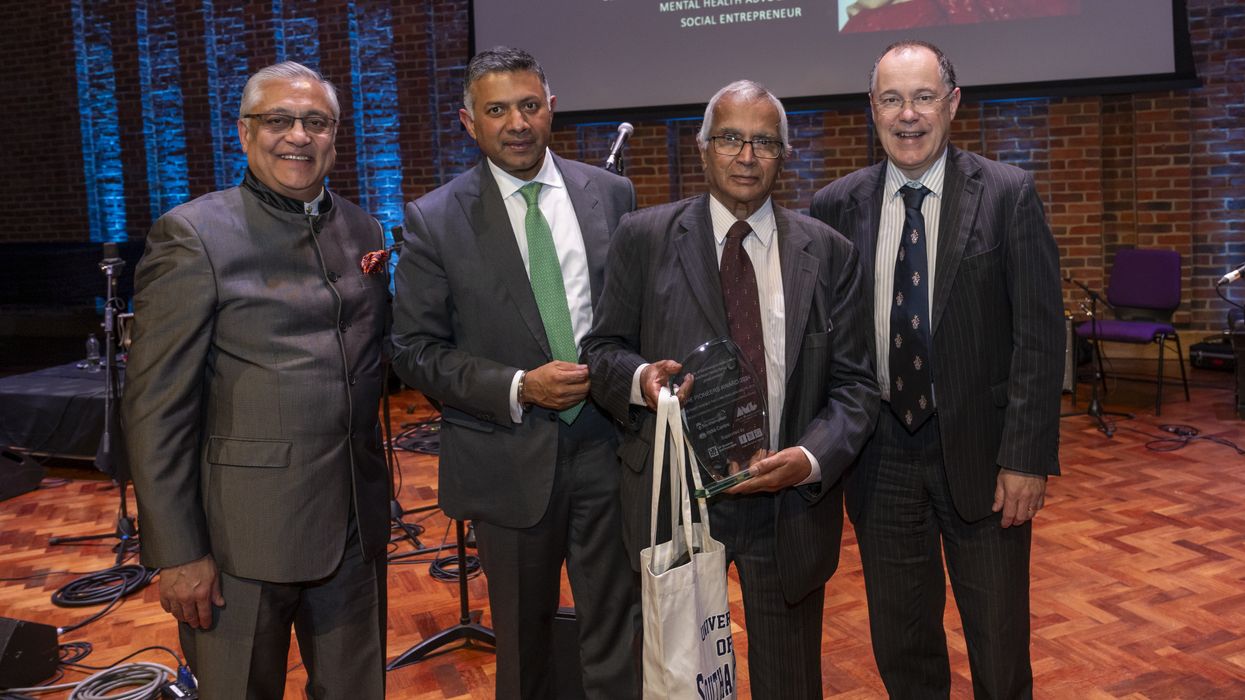
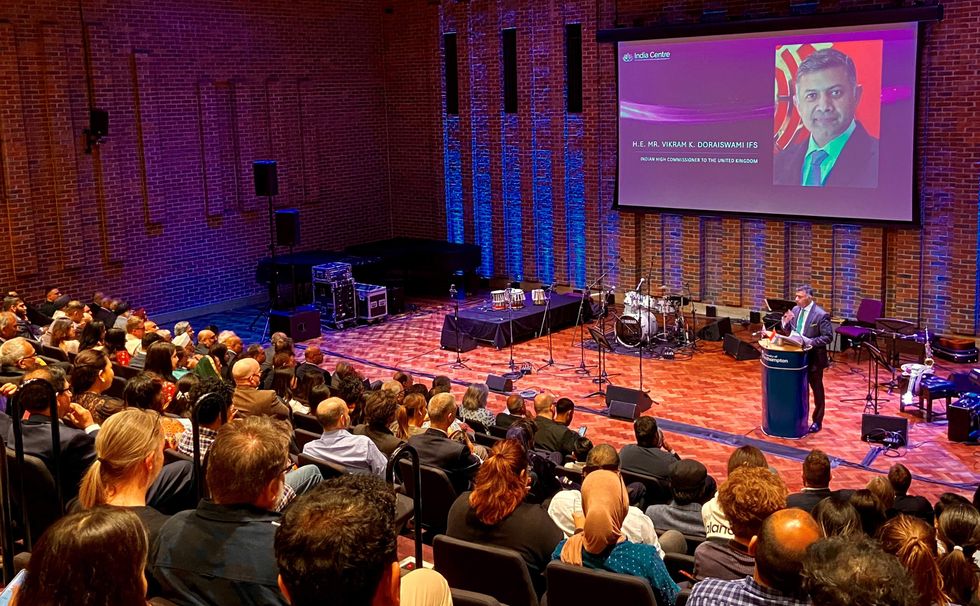 Doraiswami addresses guests at the event
Doraiswami addresses guests at the event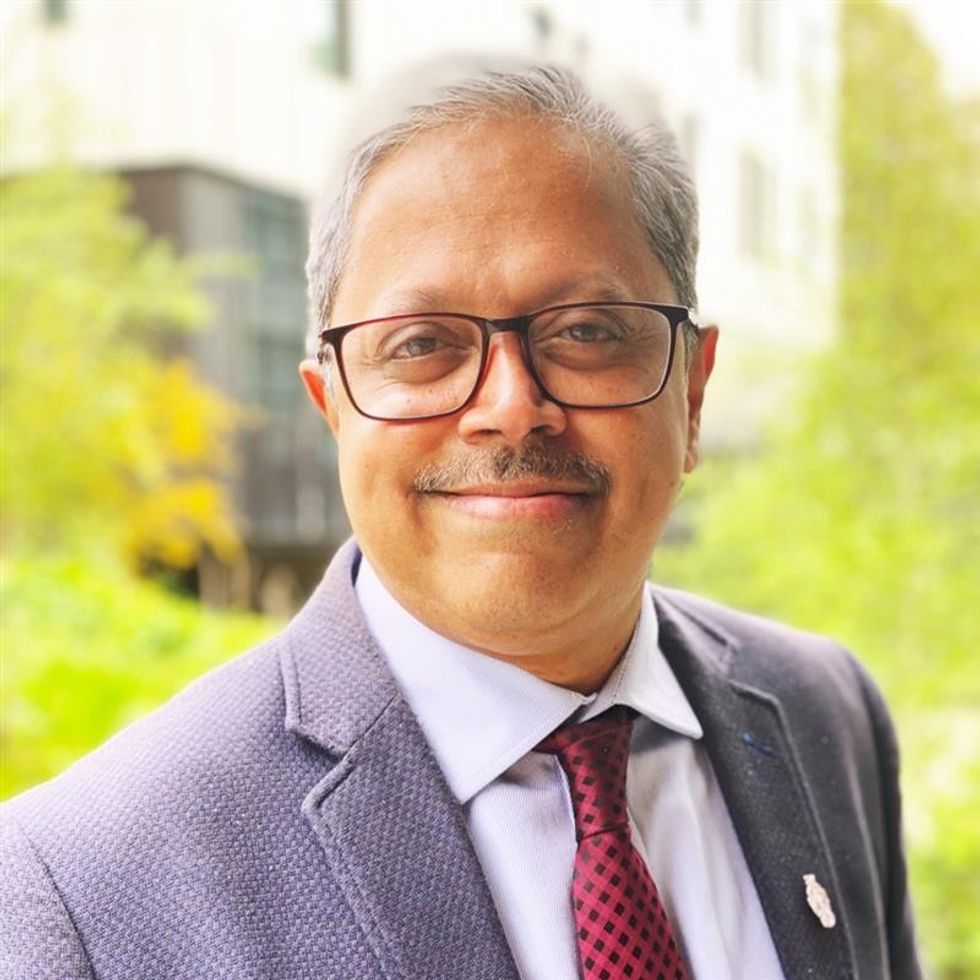



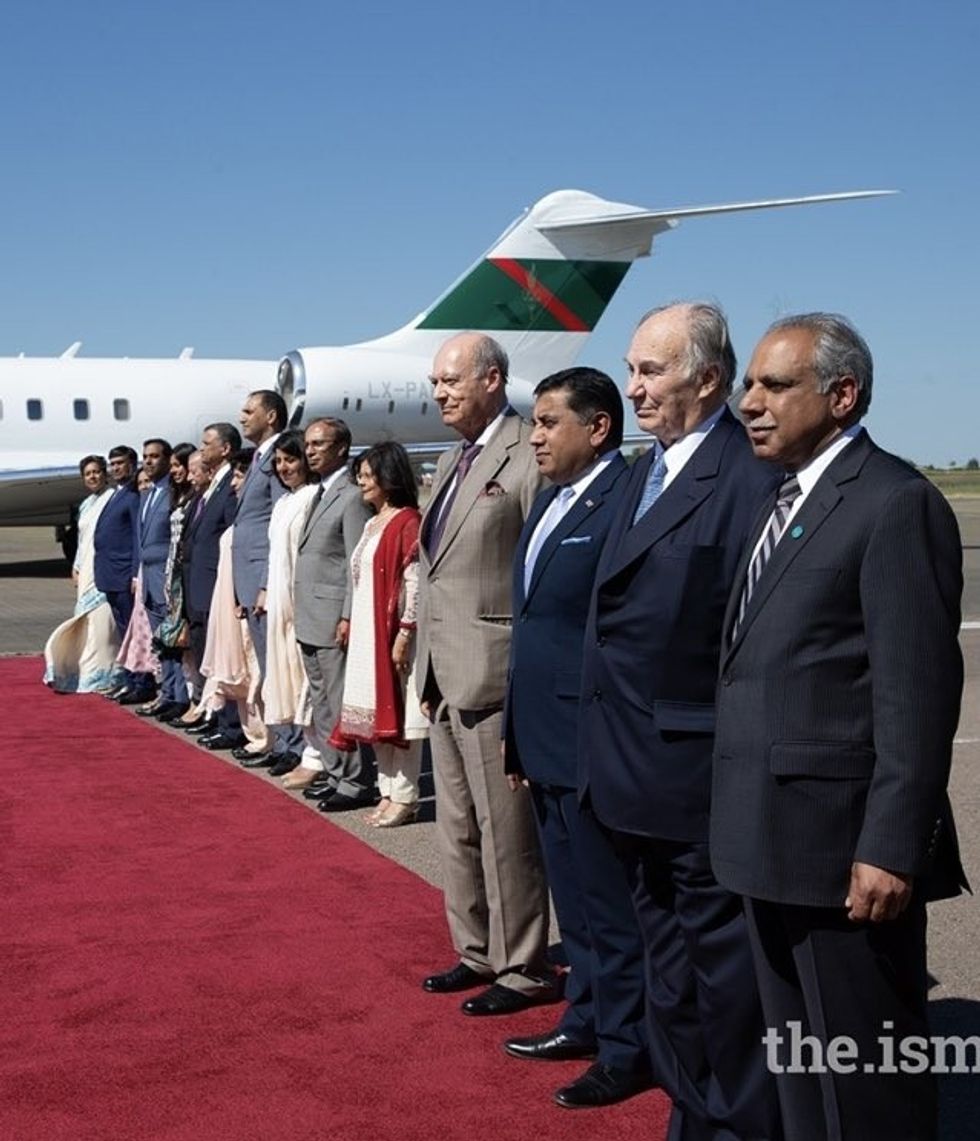 Liakat Hasham and other dignitaries receive Aga Khan in the UK during an official visit
Liakat Hasham and other dignitaries receive Aga Khan in the UK during an official visit
New era beckons for UK-India relations